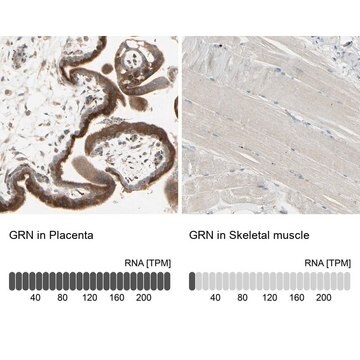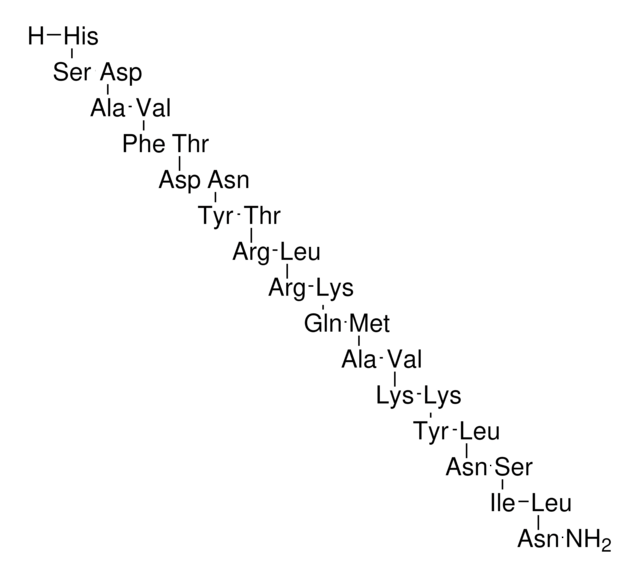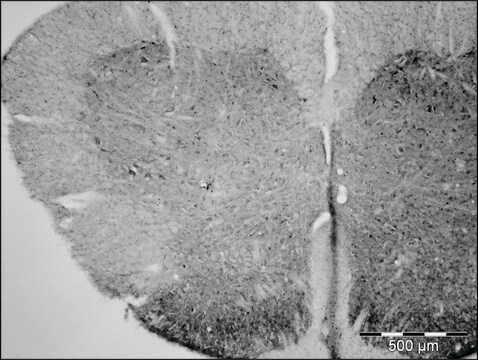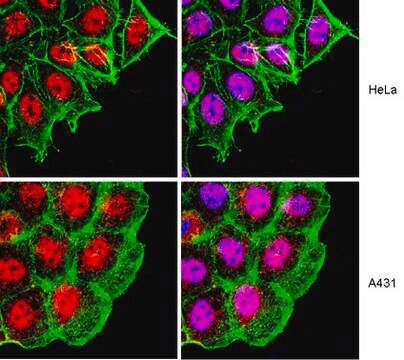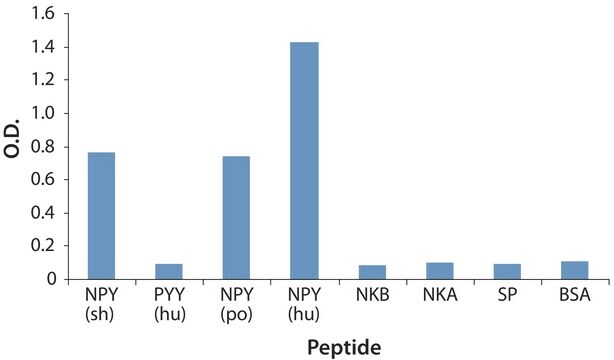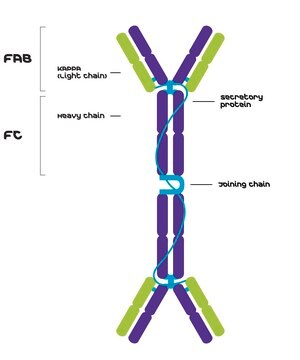MABN1795
Anti-Progranulin/GRN Antibody, clone 8H10
clone 8H10, from rat
Synonym(s):
Granulins, Progranulin/GRN
About This Item
Recommended Products
biological source
rat
Quality Level
antibody form
purified immunoglobulin
antibody product type
primary antibodies
clone
8H10, monoclonal
species reactivity
mouse
technique(s)
immunohistochemistry: suitable
western blot: suitable
isotype
IgG2cκ
NCBI accession no.
UniProt accession no.
shipped in
wet ice
target post-translational modification
unmodified
Gene Information
mouse ... Grn (14824)
General description
Specificity
Immunogen
Application
Neuroscience
Developmental Signaling
Immunohistochemistry Analysis: A representative lot detected elevated progranulin expression in the cortex, hippocampus, and thalamus regions of Ctsd-/- mice when compared with wild-type mice using frozen brain sections (Gotzl, J.K., et al (2014). Acta Neuropathol.127(6):845-860).
Quality
Western Blotting Analysis: 2.0 µg/mL of this antibody detected Progranulin/GRN in 10 µg of mouse uterus tissue lysate.
Target description
Physical form
Storage and Stability
Other Notes
Disclaimer
Not finding the right product?
Try our Product Selector Tool.
Storage Class Code
12 - Non Combustible Liquids
WGK
WGK 1
Flash Point(F)
Not applicable
Flash Point(C)
Not applicable
Regulatory Listings
Regulatory Listings are mainly provided for chemical products. Only limited information can be provided here for non-chemical products. No entry means none of the components are listed. It is the user’s obligation to ensure the safe and legal use of the product.
JAN Code
MABN1795:
Certificates of Analysis (COA)
Search for Certificates of Analysis (COA) by entering the products Lot/Batch Number. Lot and Batch Numbers can be found on a product’s label following the words ‘Lot’ or ‘Batch’.
Already Own This Product?
Find documentation for the products that you have recently purchased in the Document Library.
Our team of scientists has experience in all areas of research including Life Science, Material Science, Chemical Synthesis, Chromatography, Analytical and many others.
Contact Technical Service